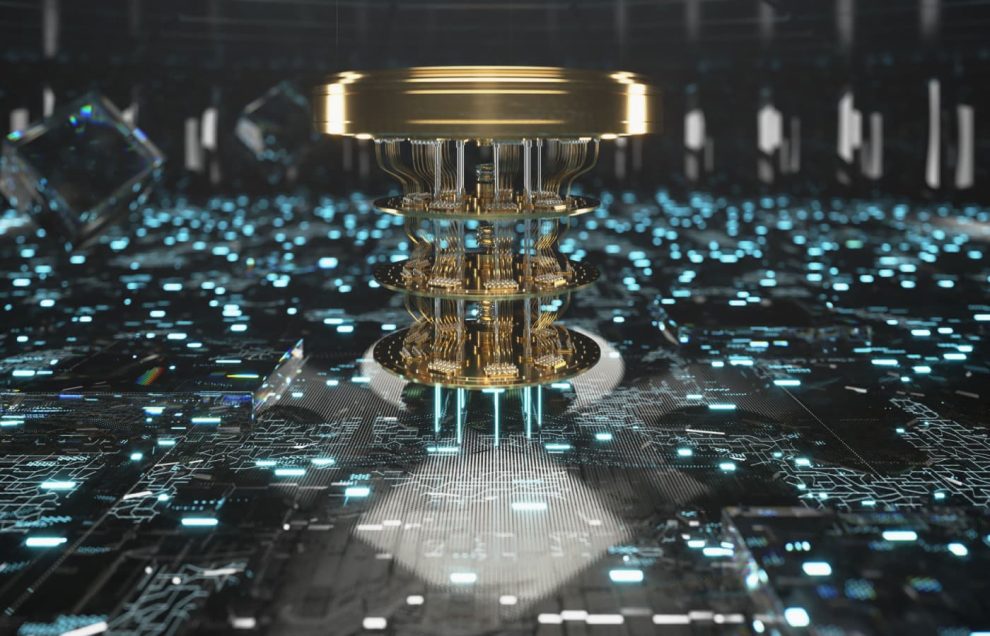Google’s Quantum Leap: Redefining Computational Possibilities
Google, a long-standing pioneer in AI research, has unveiled a quantum computer that promises to revolutionize the field of computing. This innovative machine leverages the principles of quantum mechanics to achieve processing capabilities that far surpass those of traditional computers.
The key to this quantum advantage lies in the concept of superposition, allowing the computer to explore multiple possibilities simultaneously. This breakthrough has the potential to catalyze advancements across various scientific disciplines:
- Materials Science: Quantum computing could enable the simulation of complex molecular structures, potentially leading to the discovery of materials with unprecedented properties.
- Pharmaceutical Research: The ability to analyze vast chemical libraries may accelerate drug discovery processes, potentially identifying novel therapeutic candidates more efficiently.
- Fundamental Physics: Enhanced computational power could help unravel some of the most perplexing questions in quantum mechanics and cosmology.
However, the road to widespread quantum computing adoption is not without obstacles. These sophisticated machines require extremely low temperatures and specialized environments to function correctly. Additionally, the development of quantum-specific software and programming techniques presents a significant challenge for the tech community.
OpenAI’s Prediction: The Changing Landscape of Creative Work
While Google’s quantum computer represents a leap forward in processing power, OpenAI, another prominent AI research organization, has raised important questions about the future of human creativity in the face of advancing AI capabilities.
Mira Murati, OpenAI’s Chief Technology Officer, has suggested that ongoing developments in AI technology may lead to the elimination of certain creative professions. This prediction has sparked a debate about the long-term implications of AI on the job market, particularly in fields traditionally considered uniquely human domains.
The potential for AI to analyze vast datasets and identify patterns that resonate with audiences could reshape industries such as:
- Graphic Design
- Content Writing
- Digital Marketing
- Music Composition
As AI systems become more sophisticated in generating content that aligns with user preferences, businesses may increasingly turn to these technologies to streamline creative processes and reduce costs.
Navigating the Ethical Implications of Advanced AI

The rapid progress in AI technology, exemplified by Google’s quantum computer and OpenAI’s projections, raises critical ethical considerations that society must address:
- Preserving Human Creativity: How can we ensure that AI enhances rather than replaces human creative expression?
- Workforce Adaptation: What measures can be implemented to support workers whose skills may become obsolete due to AI advancements?
- Responsible Development: How can we create robust regulations to prevent the misuse of powerful AI and quantum computing technologies?
- Data Privacy and Security: What safeguards are necessary to protect sensitive information in an era of unprecedented computational power?
Addressing these ethical challenges requires a collaborative effort between governments, tech companies, and academic institutions. Open dialogue and transparent research practices will be crucial in developing AI systems that benefit society while minimizing potential harm.
The Path Forward: Balancing Innovation and Responsibility
As we stand on the cusp of a new era in artificial intelligence, it’s clear that the decisions made today will shape the trajectory of this transformative technology. To harness the full potential of AI while mitigating its risks, several key actions are necessary:
- Invest in Education and Reskilling: Governments and businesses must prioritize programs that equip workers with the skills needed to thrive in an AI-driven economy.
- Foster Interdisciplinary Collaboration: Encourage partnerships between AI researchers, ethicists, and policymakers to develop comprehensive frameworks for responsible AI development.
- Promote Transparency: Advocate for open-source AI initiatives and clear communication about the capabilities and limitations of AI systems.
- Establish Global Standards: Work towards international agreements on AI governance to ensure consistent ethical practices across borders.
The AI revolution, propelled by breakthroughs like Google’s quantum computer and tempered by predictions from organizations like OpenAI, presents both unprecedented opportunities and significant challenges. By approaching these developments with a balance of enthusiasm and caution, we can strive to create a future where AI serves as a powerful tool for human progress and creativity.
As we navigate this complex landscape, ongoing research, ethical consideration, and public discourse will be essential in shaping an AI-enabled world that aligns with our collective values and aspirations.
















Add Comment